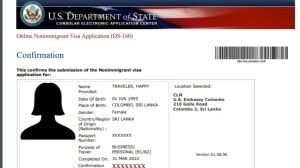A recent study has revealed that Rotovac, an indigenous rotavirus vaccine by Bharat Biotech can lead to bowel complications. The findings of the study were published in the International Journal of Risk and Safety in Medicine. According to the study, the vaccine which is a part of the government’s immunisation programme, has been associated with an increased risk of intussusception in infants.
Intussusception is a serious condition where one part of the intestine slides into the next, potentially leading to bowel gangrene or even death without immediate treatment.
The study, published on 11 June 2024, co-authored by Jacob Puliyel, MD of the International Institute of Health Management Research, India, and Brian Hooker of Children’s Health Defense, revealed a 1.6-fold increased risk of intussusception among vaccinated infants, which was not previously detected in initial analyses.
According to a report by Economic Times, Puliyel emphasised the need for parents to be informed about this risk due to the vaccine’s potential to mimic dysentery symptoms.
Meanwhile, Bharat Biotech dismissed the study and stated that the vaccine’s safety had been rigorously evaluated. The company referred to previous analyses, including one from the New England Journal of Medicine in 2020, which suggested no increased risk of intussusception beyond the background level in vaccinated infants.
The company reaffirmed Rotovac’s safety, emphasising its manufacture from human rotavirus strains and not animal origins. Reportedly, the drugmaker also criticised the recent study’s methodology, asserting it deviated from established statistical plans, thus questioning its validity.
In 2020, a New England Journal of Medicine analysis found there was no risk of intussusception from Rotavac, a live attenuated rotavirus vaccine. A statistical method called self-controlled case series (SCCS) determined that the risk of intussusception in the high-risk window (21 days after any dose of the vaccine) was comparable to the background risk.
The company said that the data is not new, but it is reanalysis of old data that was “out of line with the experimental design and statistical plan. Hence, it cannot be interpreted in a meaningful manner to merit serious consideration,” it further said.
“Rotovac is manufactured using human rotavirus strains and not from animal origin. Hence, the rate of intussusception is similar in vaccinated and non-vaccinated subjects,” the company said in a statement.
Meanwhile, Bharat Biotech pointed out that the ET report skipped information provided in the statement about a PIL filed by Dr. Puliyel in the Delhi High Court that was dismissed stating the petition was “misconceived and motivated with private interest”.
Bharat Biotech said, “Furthermore, the Economic Times has omitted an important part of our statement, depriving the readers of this crucial information: Dr. Jacob Puliyel filed a Writ Petition (allegedly PIL), being WP(C.) No. 6913 of 2015 before the Hon’ble High Court of Delhi, seeking segregated data of ‘Rotovac vaccine’ wherein the Hon’ble High Court of Delhi vide order dated 14.10.2015, while dismissing the writ petition had castigated Dr. Puliyel by stating that the writ petition is misconceived and motivated with private interest.”
In 2015, Dr Puliyel had filed a Public Interest Litigation (PIL) in the Delhi High Court seeking the release of segregated clinical trial data for Rotavac. The court had dismissed the petition noting that the vaccine was approved based on comprehensive data reviewed by both national and international bodies which included the National Technical Advisory Group on Immunization (NTAGI) and the World Health Organization (WHO).
The High Court further pointed out that Dr Puliyel, who himself was a member of NTAGI and the vaccine was introduced in the National Immunisation Programme on NTAGI’s recommendation.
(Disclaimer: The story and the headline has been updated after receiving Bharat Biotech’s statement over e-mail)








